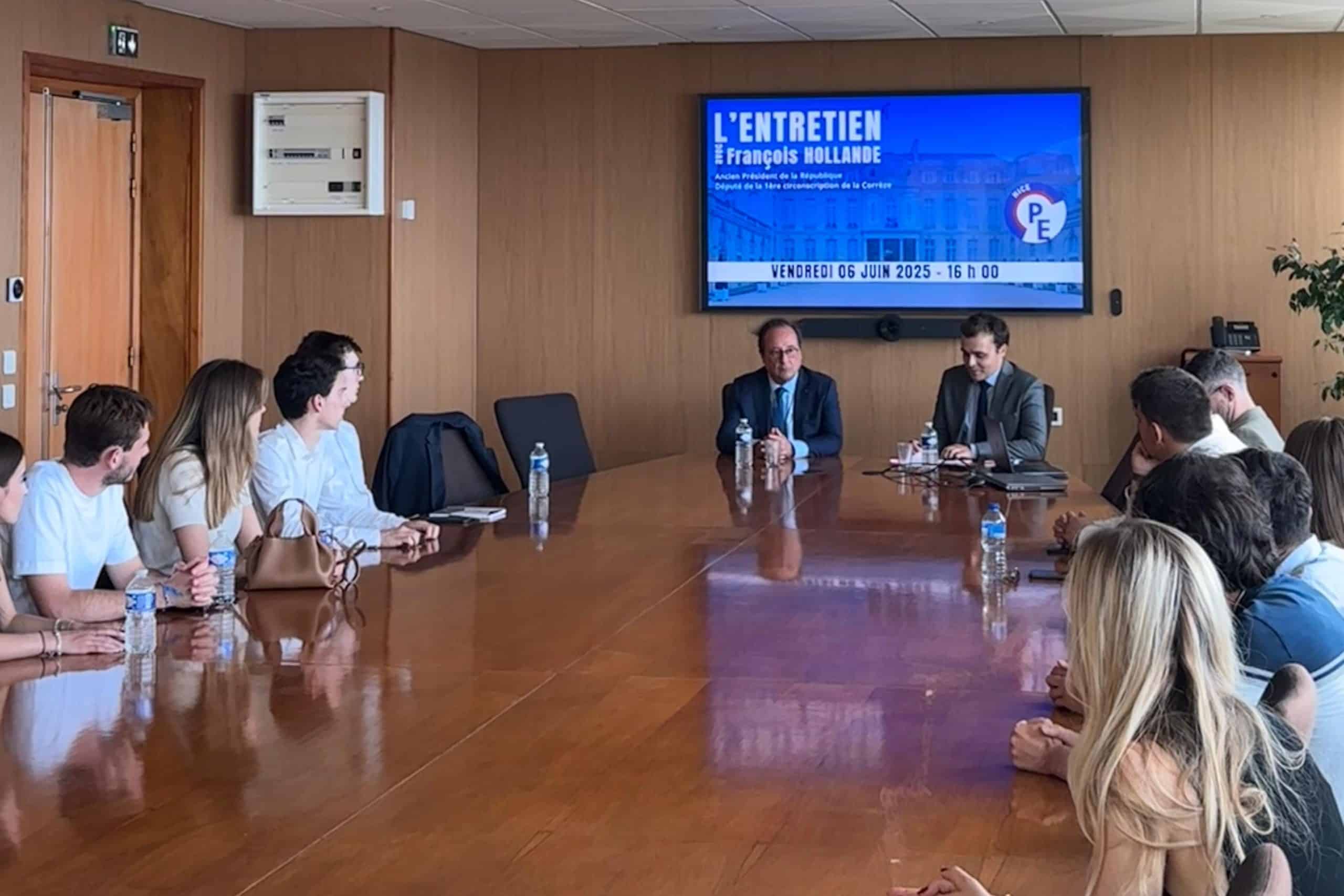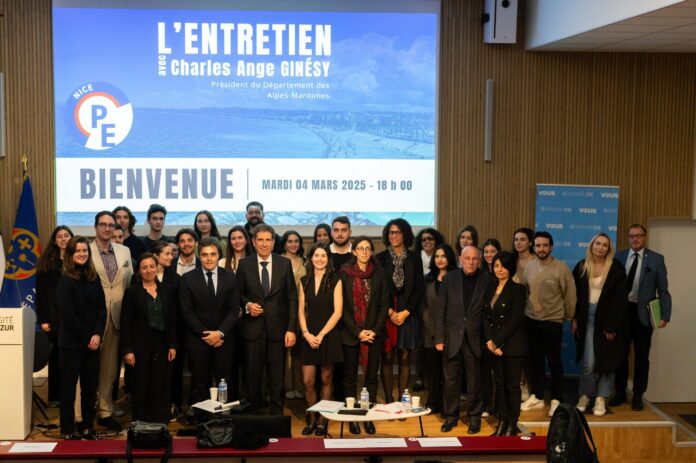Abstention among young people reached more than 70% in the last municipal elections. To help students understand the importance of voting, an initiative developed in several major cities in France has emerged in Nice.
Le Parlement des Étudiants, a national apolitical association already established in Paris and Lyon, is now present in the universities of Nice. Maxime Guay, 21 years old, a Master’s student in public law and president of the Parliament of Students of Nice, is determined to reconcile youth and politics. Conferences, debates, parliamentary simulations… the aim of this association is to train enlightened citizens who are capable of getting involved, debating, and eventually being able to commit themselves in the future.
Vice-president of the Parliament of Students of Lyon a few years ago, Maxime Guay, deeply attached to his Maralpin territory, wanted to create a Nice branch because, in his view, there is a democratic rift to be repaired, particularly in light of the results of the last municipal elections. Far from partisan divides, the association intends to provide a neutral and educational space where everyone can learn about the workings of institutions, understand the stakes of mandates, and even gain confidence when speaking in public. “We want to reconnect the link between youth and politics. Learn what an MP is, what a mayor is for… It’s real political education,” insists Maxime.
A youth wanting to reconnect with politics
Since its official launch in March, the Parliament of Students of Nice has been multiplying its initiatives: conferences with elected officials, debate evenings, and soon a parliamentary simulation. “Our first activity was a conference with the president Charles-Ange Ginésy. It was an open, unfiltered exchange, in a friendly atmosphere.” They have also organized several current affairs debates where students come prepared with arguments to discuss a topic together.
Another highlight was a meeting with François Hollande: “we were able to discuss his transition from President of the Republic to MP, and he shared many anecdotes about the Élysée. The students greatly appreciated this moment.” Maxime wishes to emphasize the apolitical and respectful nature of the debates: “my team does not take a position. We are here for the proper conduct, to enforce the rules. We don’t want any disruptions or for things to become chaotic when two opinions meet.”

This year, a parliamentary simulation is planned. Students will take on the roles of fictional MPs, propose laws, amend them, and debate in an institutional setting. “Unlike the national assembly, it will be more peaceful. What we want is an exchange of ideas, not clashes,” he clarifies. Previous experiences give him confidence. “In Lyon, students from the far left and far right debated, then went for coffee together. That’s democracy.”
While the Nice association was launched by a law student, it is not limited to that field. Students in medicine, commerce, journalism, high schoolers… The objective is to bring together diverse profiles. “That’s what makes the association beautiful: everyone comes with their own experience, their own opinion, and it results in very constructive debates.”
With nearly 90 members and a presence on social media, the association is starting to establish itself in the student world. Lately, membership was free, but to grow the project and further professionalize it, new rules are being considered: “we are thinking about implementing a membership fee with a subsidy system and perhaps organizing a trip to Paris to visit the national assembly.”


